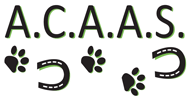Australian College of Applied Animal Studies can also help with updating your qualifications through a process called Recognition of Prior Learning (RPL).
Recognition of Prior Learning (RPL) is a term that refers to the acknowledgement of skills and knowledge already attained in the context of awarding credit/recognition against a course of study or qualification. It is a structured process that assesses an individual’s required knowledge and skills outcomes or standards for entry to, and/or partial or total completion of a qualification.
RPL acknowledges skills and knowledge already attained through:
-
- Prior work experience, including paid and/or voluntary work;
- Formal and informal training or study; and
- Life experience.
If you have received a qualification recognised under AQF refer to information on National Recognition.
ACAAS RPL pathways are designed to be flexible and to recognise prior learning and experience, whilst maintaining the required AQTF standards. A wide range of veterinary nurses with a great diversity of knowledge/experience may apply for RPL.
ACAAS will assess applications for RPL in the following circumstances:
- On entry to the training program, to ascertain the total amount of training time needed to attain your required qualification.
- On entry to the training program for nurses already working in the veterinary nursing profession without formal recognition of their skills.
- When changing training providers e.g. moving from a TAFE or another Registered Training Organisation to ACAAS, or changing your career focus.
- When changing pathways – e.g. changing from a horse management qualification to veterinary nursing with the equine elective.
Applying for RPL
In order to have their prior learning and skills formally recognised candidates must demonstrate:
- The extent to which the prior experience/learning meets the learning outcomes and completion of training requirements of the qualification and standards of ACAAS.
- The extent to which the experience/learning embraces the skills and knowledge requirements of the individual Unit of Competency and
- The way prior experience was obtained.
Simplified, these principles mean:
- What was learned or done (content)
- How was it learned or done (context)
Preparation of Applications for RPL
The RPL process in itself can be a barrier to application, as candidates can perceive it to be a complex process. Candidates are encouraged to think of the process in the following terms:
- What do I know?
- How do I know it?
- What can I do?
- What have I done?
- What documents and other methods of support exist to demonstrate this?
Candidates will need to clearly identify in their applications how their prior learning/skills meet the learning outcomes of a particular Unit of Competency.
They then need to provide satisfactory evidence of that learning/skill.
The responsibility for compiling, presenting and substantiating the application rests with the applicant, who must provide an RPL portfolio with sufficient supporting evidence to verify their request.
Candidates training within ACAAS are strongly encouraged to seek the support and assistance of the Director of Training when compiling an application.
In this situation the candidate should ensure that ACAAS is informed of the intention to apply for RPL.
The portfolio may be prepared in either electronic or paper formats. ACAAS has designed an RPL Application Document, which will assist candidates to prepare their portfolio.
The following types of experiences and skills could be considered for RPL:
- Prior veterinary nursing experience, or animal care experience which has been supervised or unsupervised, but can be validated.
- Prior courses of study, which may include course work relevant to the qualification for which you are applying.
Indicators of Acceptable Evidence
The following items encompass the types of evidence which will assist a candidate to support their application for RPL:
- A log of verified clinical experiences obtained by the applicant, with an explanation of how these correlate to the learning outcomes of the relevant content area.
- A log of educational activities undertaken by the applicant, with an explanation of how these correlate to the learning outcomes of the Unit of Competency.
- Copies of feedback and assessments undertaken
- The names and contact details of two referees who can verify and discuss the candidate’s claims and
- Copies of course outlines, CVs and testimonials that can be verified.
RPL Assessment Process
The candidate should submit their application for RPL to the ACAAS Director of Training.
The applicant will be involved in a meeting to discuss the RPL process, gathering of evidence and presentation of required evidence for the RPL process.
The Director of Training will assess RPL applications for sufficiency, authenticity, currency, validity, reliability and amount/type of RPL to be granted.
The applicant will undergo an interview with the RPL panel to determine experiences and suitability of material/candidate’s experiences to obtain RPL for required Units of Competence.
Director of Training will reach a definitive conclusion about the level of RPL to be granted.
RPL applicants are given 100 days to complete this assessment process.
For further information on the RPL process, please contact the college on (03) 9796 9583.
